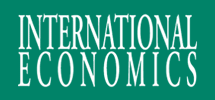
<< N°134
| N°134 | ||
| Issue Q2 2013 | ||
| Market effects of information requirements under the Biosafety Protocol | ||
|
Antoine Bouėt Guillaume Gručre Laėtitia Leroy |
||
| This paper assesses the global economic implications of the proposed strict documentation requirements on traded shipments of potentially genetically modified (GM) commodities under the Cartagena Protocol on Biosafety. Using a spatial equilibrium model with 80 maize and 53 soybean trading countries, we show that information requirements would have a significant effect on the world market for maize and soybeans, distorting trade and generating welfare losses for all Protocol members and for non-members that produce GM maize and/or soybeans. While non-GM producers in Protocol member countries would benefit, the regulation would negatively impact consumers and producers in many developing countries. |
Abstract |
|
| Genetically modified food ; International trade ; Cartagena Protocol on Biosafety ; | Keywords | |
| F14 ; F18 ; Q17 ; Q56 ; | JEL classification | |
| Order form |